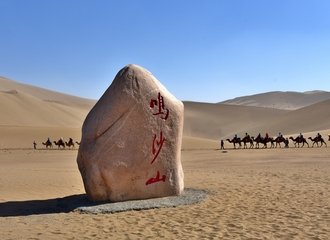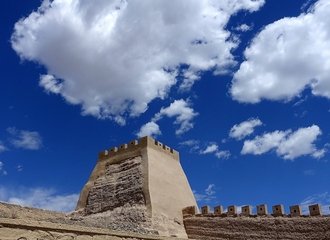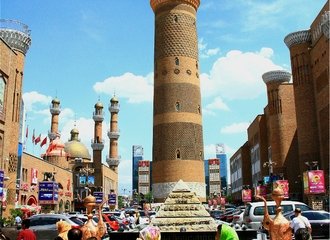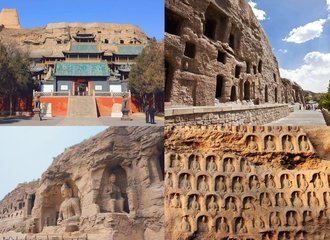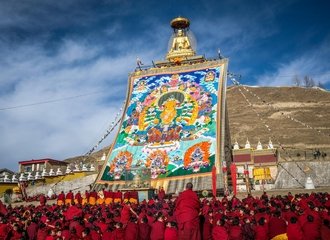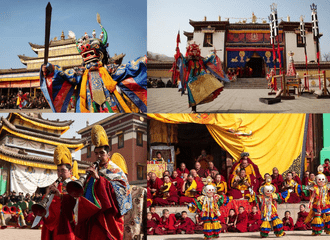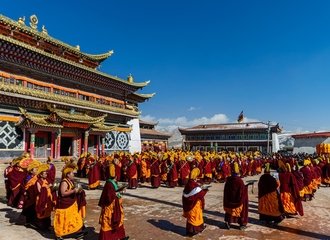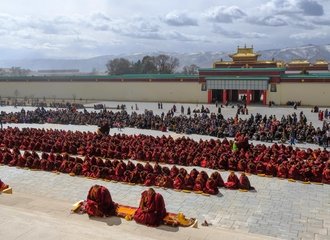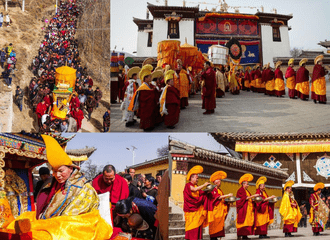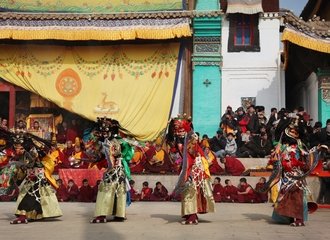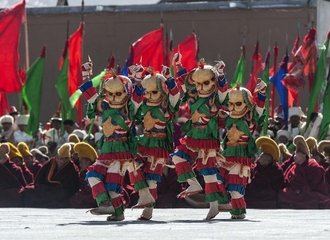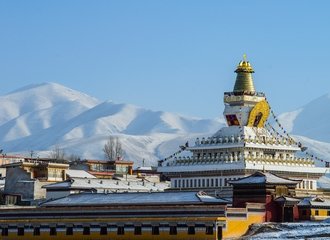Sanskrit Om Mani Pedme Hum
The Sanskrit 'Om Mani Padme Hum' is the most popular kind of all the mantras murmured by Tibetan Buddhists. Tibetans believe the unceasing murmur accumulates personal merits and helps each person to become Buddha. It can also be seen written on houses, rocks, mani stones, prayer wheels, amulets, and other sacred articles, in the hope that it will bless them.
'Om Mani Padme Hum' is said to be the fundamental true words of the Lotus of Esoteric Buddhism. It originated from the chant for Elysium sung by the Buddhist master Padmasambhava, and then became the spoken mantra of Avalokiteshvara, also known as the Bodhisattva of Compassion. Each word has a meaning by itself. 'Om' represents the heart of Buddha; 'Mani' means 'treasure' in Sanskrit; 'Padme' means 'lotus', symbolizing the pure dharma of Buddhism; 'Hum' represents the heart of the Vajra and implies that following the Buddha will lead us to the final Dzogchen. The whole expresses the good wish for living with the Buddha.

